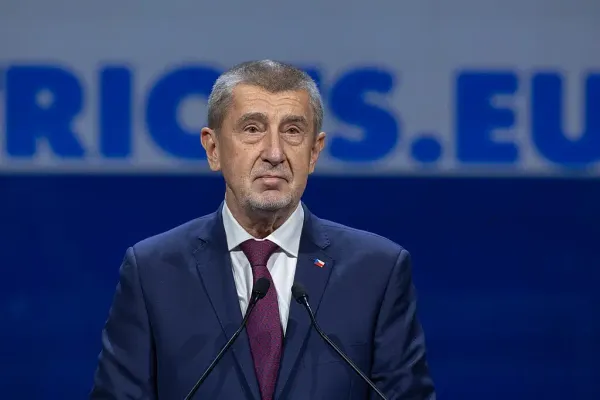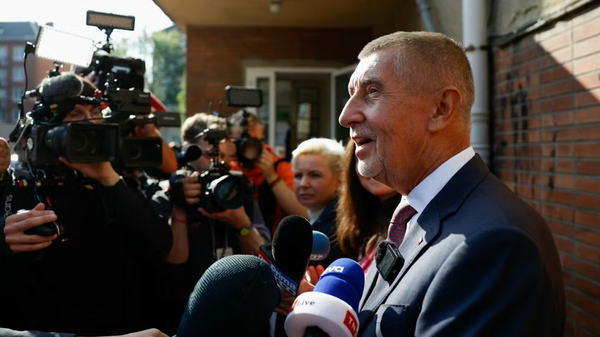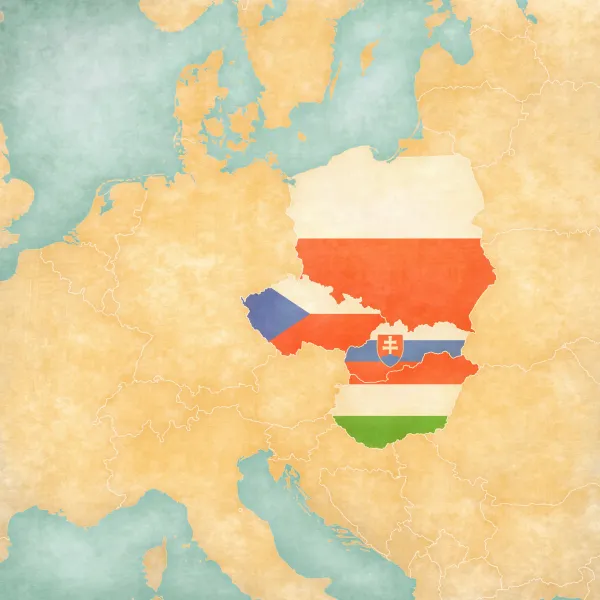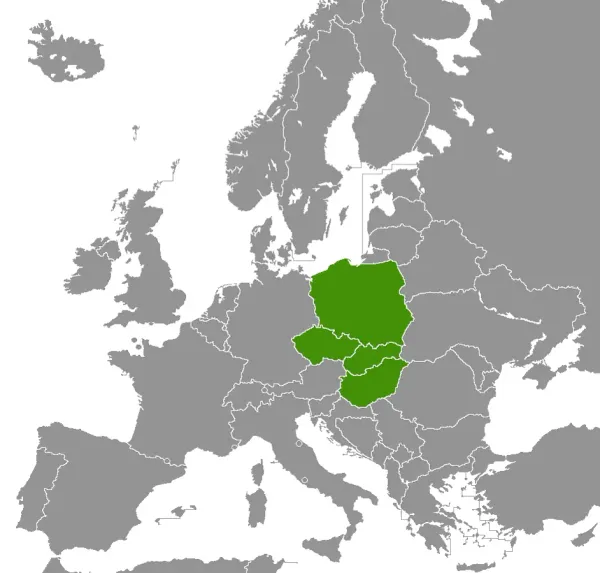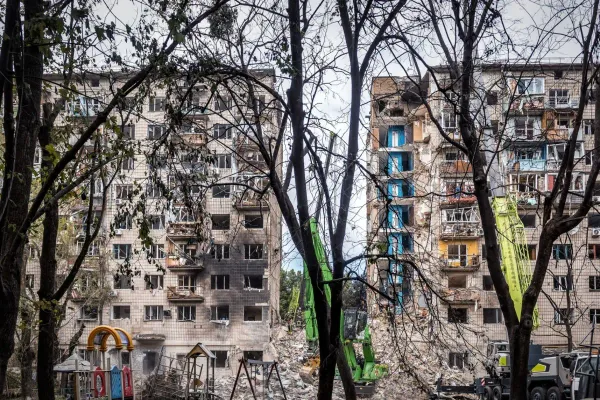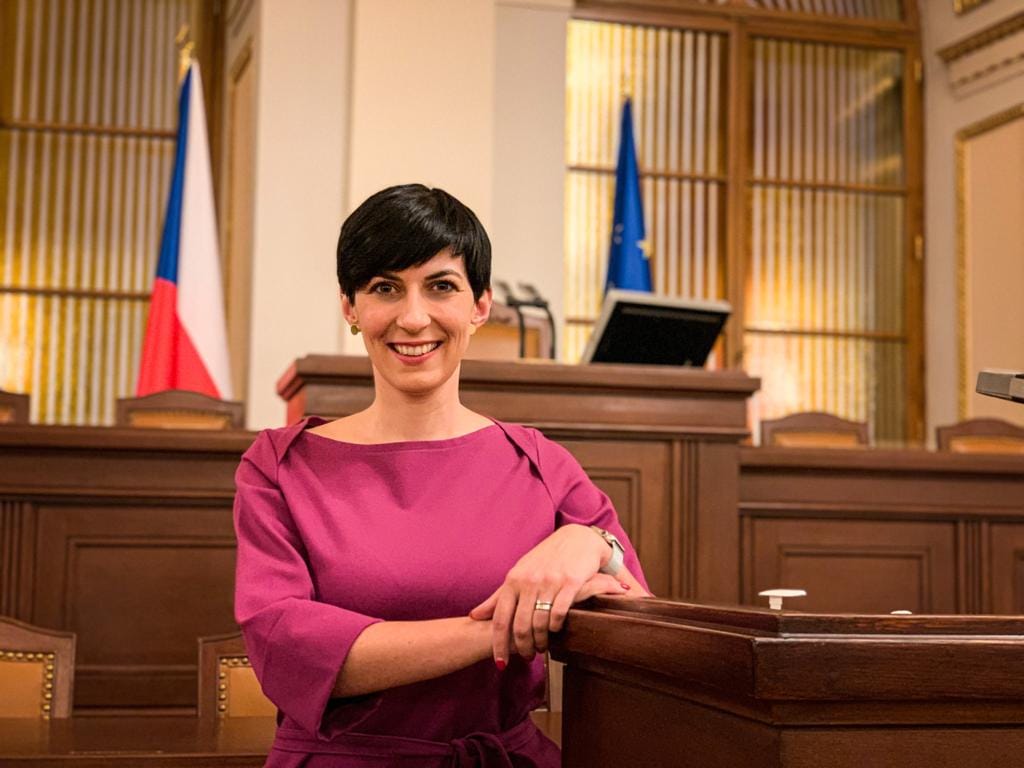
V4 meeting pulled as Polish, Czech speakers object to Hungary's proximity to Russia
The meeting of the parliamentary speakers of the Visegrad Four (V4) countries scheduled for this Friday (25 November) has been cancelled after legislative leaders from Czechia and Poland announced they would not attend the event, citing Hungary’s friendly relations with Russia, Czech new website Seznam Zpravy reported.
Czech Speaker Marketa Pekarova Adamova, a frequent critic of Hungarian Prime Minister Viktor Orban, accused Hungary of acting as “Russia’s Trojan horse”, adding that “I see it as important to send them a clear signal that this is unacceptable.”
The leader of the pro-EU, centre-right TOP 09 party added that “it is always the Hungarians who are the last to agree to the sanctions package, demanding concessions and threatening not to support further sanctions. Moreover, they are able to use the issue of war internally against the EU.” Slovak officials have reportedly confirmed to Pekarova Adamova that the meeting will not take place.
Polish speakers, Czech upper House speaker, also rebuff Friday meeting
The leaders of Poland’s two legislative chambers were also planning to stay away from the meeting, Seznam Zpravy reported, citing inside sources.
Pekarova Adamova’s opposite number in the country’s upper house, Czech Senate President Milos Vystrcil, also refused to attend the meeting, saying “the Hungarians are negotiating bilaterally with Russia about the supply of some energy commodities.
“This does not allow for a united stance by EU countries, and thus the promotion of our objectives in this energy crisis,” Vystrcil added.
The office of Hungary’s House Speaker Laszlo Kover said it regretted “the postponement” of the meeting, in a statement.
Hungary House speaker rues ‘postponement’ of event
The V4 is a grouping of the Central and Eastern Europe (CEE) countries, Poland, Hungary, Czechia and Slovakia, aimed at advancing co-operation in military, economic, cultural and energy affairs, and EU integration.
Since it was established in 1991, the V4 has helped the four former Warsaw Pact countries to align more closely with the west, most notably by joining the EU and NATO in 2004.
According to the statement from Kover’s office, “over the past 30 years, regional cooperation between the four countries had succeeded in representing common interests while bridging ideological differences.
“The remarks of the Czech House speakers about Hungary are untruthful and disrespectful, they do not correspond to the facts and they question the Hungarian government’s right to shape its policy in the Hungarian national interest,” the statement added.
Czech PM expresses faith in V4, will attend Thursday meeting
Pro-Hungarian government media recalled “simmering tensions” during Hungarian President Katalin Novak’s visit to Prague in June, when the head of state did not hold the customary meeting with the Czech House leaders, who explained their absence as due to a foreign trip.
Regardless of his coalition partner’s boycott, Czech Prime Minister Petr Fiala will attend a different V4 meeting in Bratislava on Thursday. “The important thing is that we talk to each other. The V4 at the highest level has not met in recent months. It is certainly a useful format that has proved its worth in the past,” Fiala said.

